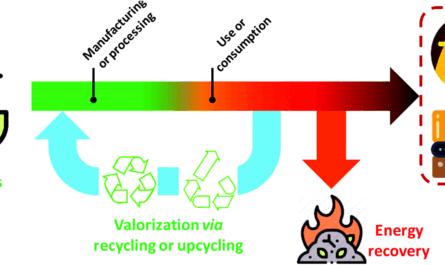Renewable bio jet fuel is a type of sustainable aviation fuel produced from renewable biomass resources such as agricultural and forestry residues, municipal solid waste, algae, and other cellulosic and non-food sources. It functions as a drop-in replacement and offers similar performance to that of conventional jet fuel. The use of renewable bio jet fuel helps reduce greenhouse gas emissions and makes aviation more environmentally sustainable.
The global renewable bio jet fuel market is estimated to be valued at US$ 299.4 Mn in 2024 and is expected to exhibit a CAGR of 3.4% over the forecast period 2024 to 2030.
Key Takeaways
Key players operating in the renewable bio jet fuel market are Abbott Laboratories, Aurobindo Pharma USA, Boehringer Ingelheim International GmbH, Cipla Limited, Hikma Pharmaceuticals plc, Jubilant Cadista Pharmaceutical, Sanofi S.A., Solco Healthcare (Prinston Pharmaceutical Inc.) and Torrent Pharmaceuticals Ltd.
The key opportunities in the market include government mandates and policies promoting the use of sustainable aviation fuels. Many nations and international organizations have introduced incentives and subsidies to boost renewable bio jet fuel production and consumption.
Technological advancements in biomass conversion and refining processes have led to improved renewable bio jet fuel yields and lower costs. R&D is ongoing to develop advanced biomass feedstocks, thermochemical and biochemical processing techniques to produce renewable bio jet fuel on a commercial scale.
Market Drivers
Stringent regulations on aircraft carbon emissions are a major Global renewable bio jet fuel market size driver. Organizations like ICAO have set carbon reduction targets that are driving up demand for low carbon jet fuels like renewable bio jet fuels. Growing consumer awareness about environmental protection is also creating pressure on aviation industry to switch to more sustainable fuel alternatives. Aviation stakeholders recognizing renewable bio jet fuel as a commercially viable way to reduce their carbon footprint and comply with emission norms in the long run.
Current Challenges in Renewable Bio Jet Fuel Market
The renewable bio jet fuel market is still in a nascent stage of development and faces several challenges. Strict emission standards and lack of infrastructure for large-scale production of bio jet fuels are major roadblocks. Sustainability certifications and the need to avoid indirect land use change also make it difficult to scaleup production. High production costs compared to conventional jet fuel is another key challenge, making it difficult for bio jet fuels to achieve price parity. Ensuring consistent supply while meeting performance requirements set by aircraft manufacturers also poses technical hurdles. Overall adoption has been slow due to uncertainties over the long-term supply and cost competitiveness of bio jet fuels. Concerted efforts are needed from both public and private sectors to address these challenges for accelerating the transition to renewable alternatives.
SWOT Analysis
Strength: Renewable bio jet fuels help reduce greenhouse gas emissions and depend on domestic feedstocks. They offer a viable solution for decreasing aviation sector’s carbon footprint.
Weakness: High production costs and lack of dedicated infrastructure for large-scale production. Performance risks and compatibility issues with existing aircraft fleet.
Opportunity: Stringent climate change policies and incentives for use of low-carbon fuels present an opportunity. Potential for collaboration between fuel suppliers, airlines and airports to establish supply chains.
Threats: Uncertainty over long-term availability and pricing of feedstock. Technological improvements needed for yielding cost competitive renewable fuels at commercial scale.
Geographical Regions
North America accounts for the largest share in the renewable bio jet fuel market due to presence of major aviation industry players and supportive policies. The U.S. is at the forefront with initiatives like the Biojet Collaborative and commercial deployment programs. Europe is the second largest market driven by stringent emission standards.Initiatives like RE-FAIR aim to facilitate a coordinated approach.
Fastest Growing Region
Asia Pacific region is expected to be the fastest growing market during the forecast period due to rapidly expanding aviation sector and increasing focus on lowering emissions in countries like India and China. Production facilities are being set with targets to adopt sustainable aviation fuels. Initiatives like the Clean Skies for Tomorrow Coalition also support regional growth.
*Note:
1. Source: Coherent Market Insights, Public sources, Desk research
2. We have leveraged AI tools to mine information and compile it



